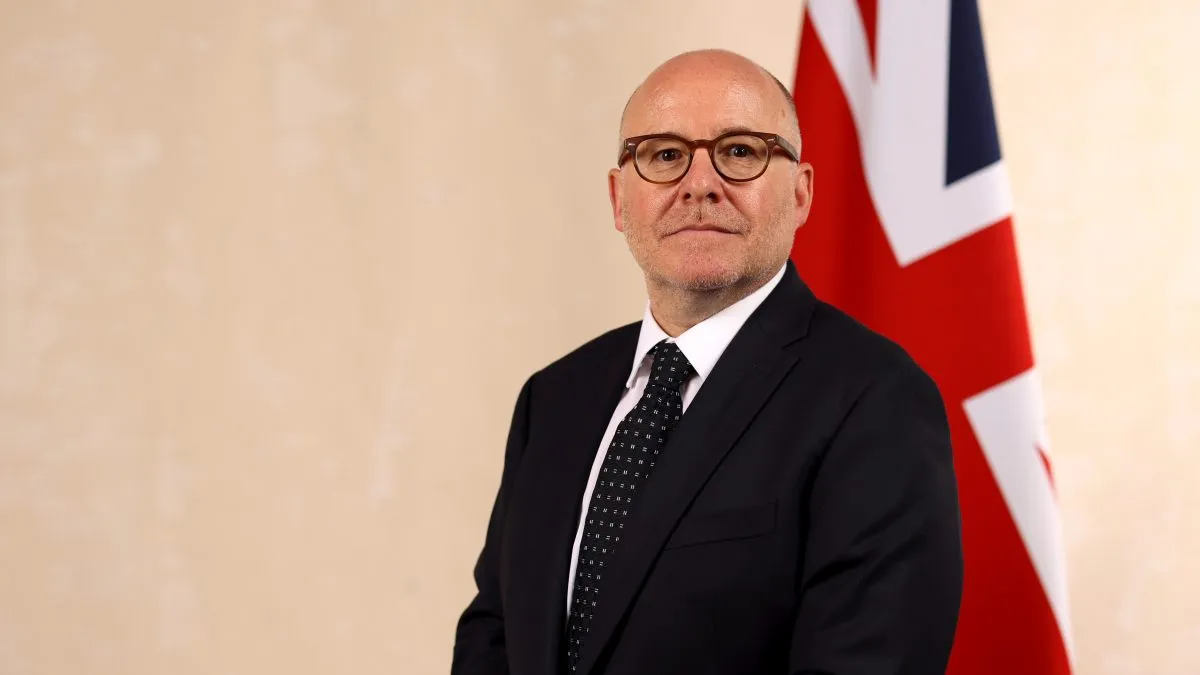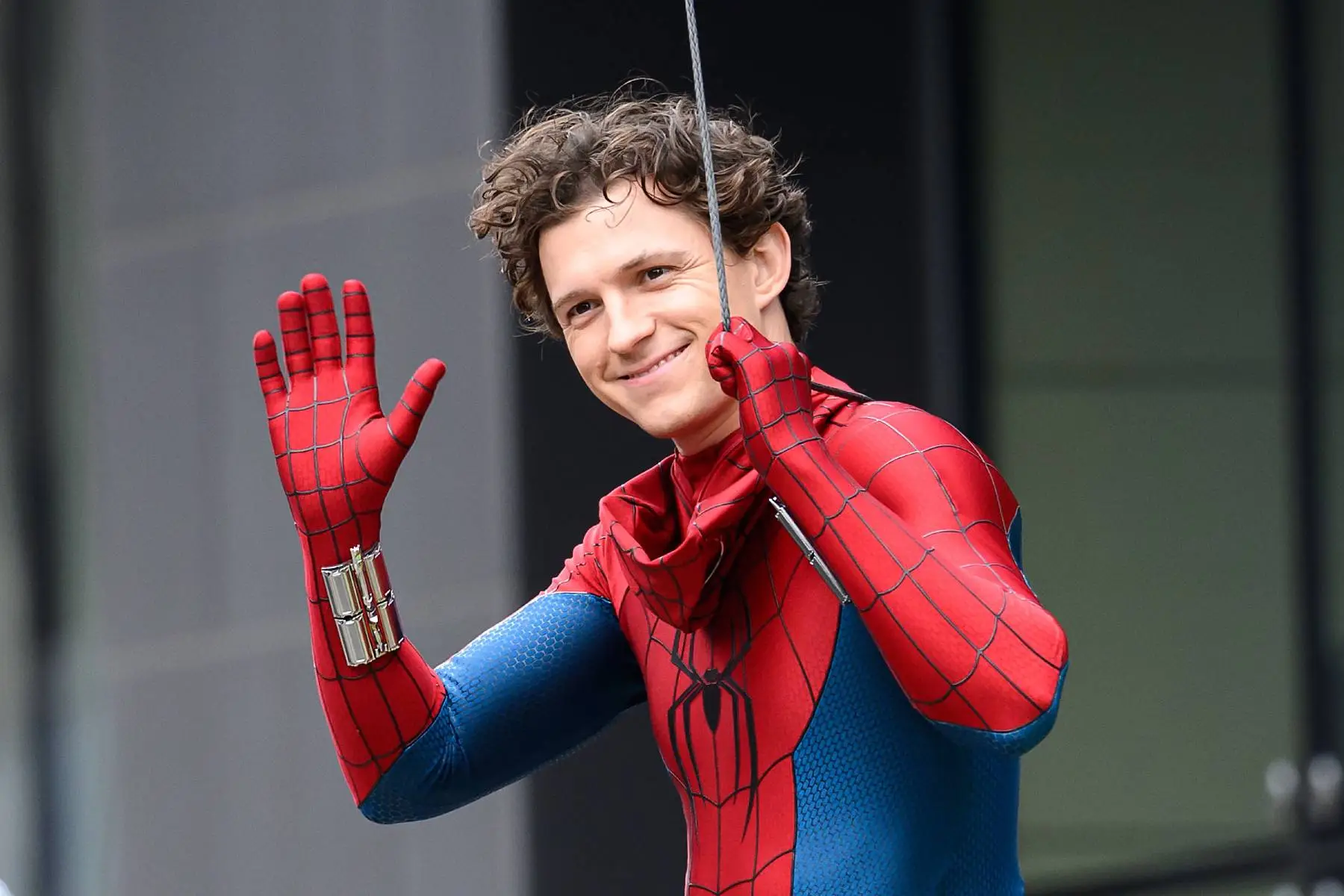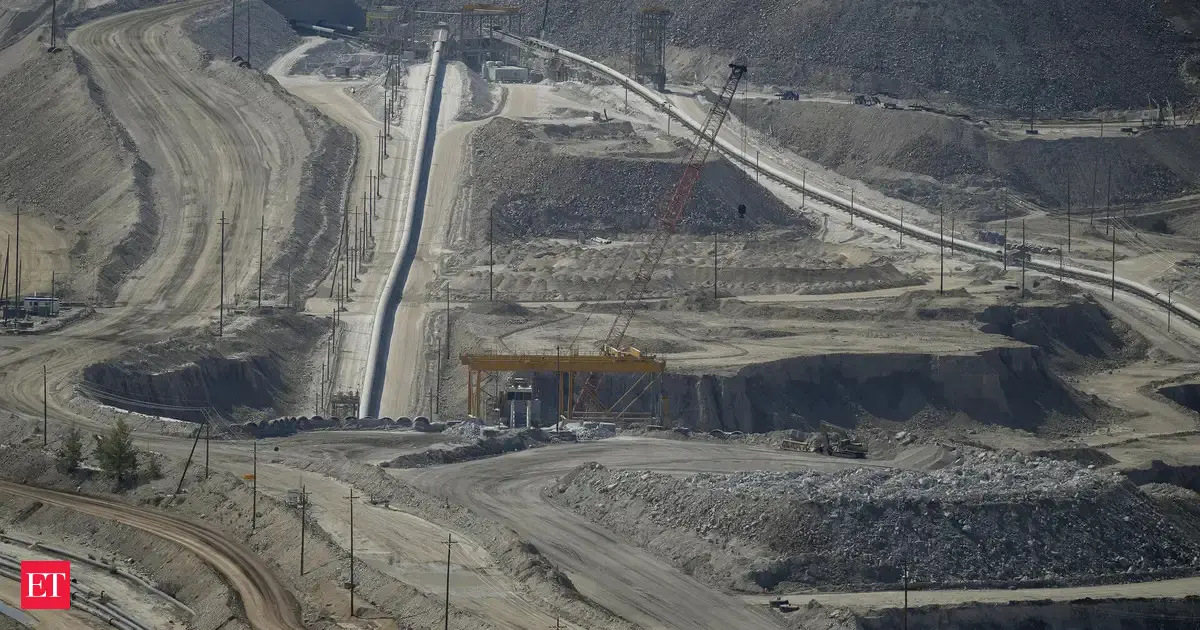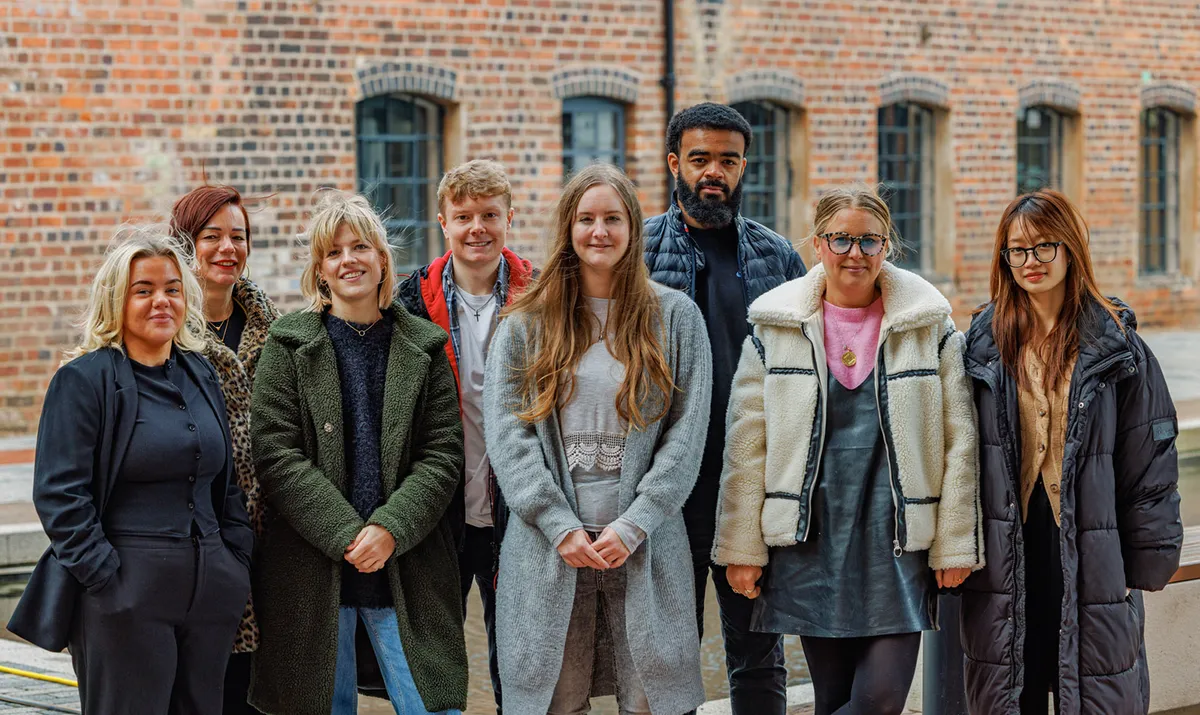By Joel MacManus
Copyright thespinoff
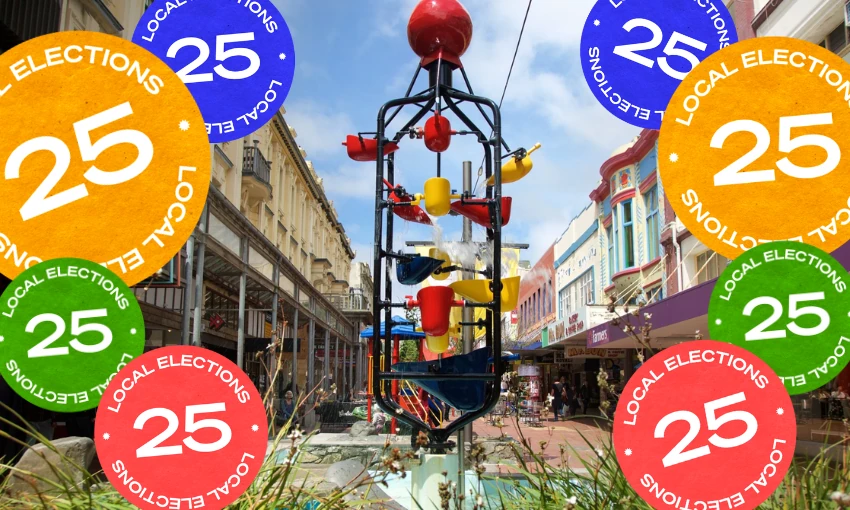
Barring a major upset, polling suggests Andrew Little will win the capital’s mayoral chains with relative ease. But the type of council he will lead is still up in the air.
Andrew Little must be feeling pretty good right now. A recent Q+A Verian poll gave him a commanding lead in the race to be Wellington’s next mayor, with 58% of first-choice votes, way ahead of second-placed candidate Ray Chung on 16%. Even taking into account a significant polling error, the former cabinet minister looks set to cruise to victory.
But let’s be honest: being mayor is kind of overrated. This isn’t Auckland, where the mayor has actual executive power and their own independent budget. In Wellington, the mayor is just like any other councillor, only with fancier jewellery. The mayor is just one of 16 votes. They get a couple of extra powers, like the tiebreaking vote and the ability to write the first draft of the city budget, but every big decision still has to go through the council.
In recent years, we’ve seen how important a council majority is to a mayor’s success. Andy Foster, a centre-right mayor, was constantly overruled by the progressive majority at the table (Wellington’s rapid cycleway rollout began in Foster’s term, even though he personally opposed it). And Tory Whanau, who had council support for most issues, lost control of the room over key issues such as the Reading Cinema deal and selling the council’s shares in Wellington International Airport.
For council watchers in the capital, these are the ward races to keep an eye on.
Motukairangi/Eastern Ward
Elects three councillors. No incumbents running.
Motukairangi is the race that could change everything. This has typically been a left/right split, but a completely open field means there is a chance this one could go completely one way or the other and swing the balance of the council.
On the progressive side, Labour is running Sam O’Brien, a 25-year-old environmental policy advisor. He has the strongest social media game of any candidate this election, with a series of Zohran-esque videos. Labour’s brand is usually pretty strong here and should be even more so after the high-profile scrap over the airport shares. The Greens’ Jonny Osborne has run a good campaign, and his expertise as a water policy specialist could play well, given that water reform will likely be the biggest issue the next council handles. Then, there’s Alex Baker, the Green-aligned-but-not-officially-endorsed mayoral candidate. He’s been putting more effort into the mayoralty than the ward race, but it’s not clear if he’s breaking through in either. Trish Given is another candidate with no party machinery but strong links to the community, which could count for a lot.
Among conservative candidates, Karl Tiefenbacher is leading the pack. He’s polling third for the mayoral race, but should be a good bet to win a ward seat here. Chris Calvi-Freeman and Rob Goulden are two others to watch; both are former councillors seeking a comeback, who may benefit from established name recognition. There are also two Independent Together candidates, Ken Au Kuoi and Michelle McGuire.
Paekawakawa/Southern Ward
Elects two councillors. Two incumbents running.
Two popular incumbents are looking to retain their seats here. The Greens’ Laurie Foon, currently the deputy mayor, is a cycling advocate and fashion designer who represents the trendy lefties of Island Bay, while Labour’s Nureddin Adburahman has strong links to the working-class immigrant communities in Newtown. The main contender is Independent Together’s Paula Muollo, a former beauty queen turned real estate agent who was closely involved with bankrupt property tycoon Terry Serepisos. She finished third in 2022 and seems to have one of the biggest advertising budgets of any campaign in the city, so an upset is always possible.
Pukehīnau/Lambton Ward
Elects three councillors. Two incumbents running.
These are Nicola Young and Geordie Rogers’ seats to lose. The third seat is particularly interesting. Pukehīnau usually swings pretty liberal, so the top candidates are probably Labour’s Afnan Al-Rubayee, a former refugee and senior public servant who finished a narrow 4th in 2022, or Tim Ward, a hospitality business owner who established San Fran, Matterhorn and Abandoned Brewery, among others. His business experience, combined with his connection to the arts and general progressive messaging, could give him some cross-partisan appeal.
If there’s a swing to the right, the candidate to watch is Dan Milward, a tech business owner and former member of Independent Together. He has run a fairly high-profile campaign with a particular focus on city safety.
Wharangi/Onslow-Western Ward
Elects three councillors. Three incumbents running.
Covering the leafy suburbs from Khandallah to Karori, Wharangi is traditionally the most conservative ward in Wellington. Diane Calvert and Ray Chung, two right-leaning mayoral candidates, both hail from this ward. If they don’t pull off a miracle and win the top job, they’ll still have good shots at retaining their seats here.
Rebecca Matthews came third in each of the last two elections, but there’s one major difference this time: she’s switched from Labour to the Greens after a strange waka-jumping fracas. The local Labour Party froze her out because some members felt she hadn’t taken a sufficiently strong stance on the airport sale. The Greens, meanwhile, were ecstatic to recruit her to their side. Matthews is beloved by progressives for her success as a housing advocate, but she’s a polarising figure, and Wharangi isn’t the most favourable ground for her politics. Labour’s new candidate is Joy Gribben, a former press secretary in the Ardern government. She’s highly experienced, but hasn’t done much to stand out during the campaign. She also doesn’t live in the ward, which may play against her. This election will be an interesting test of the powers of personal brands vs party brands in local politics.
It’s also possible that the progressive bloc could be wiped out entirely. Lily Brown, a former member of Independent Together, has been highly visible on the campaign trail, offering a fiscally conservative stance with some solid background experience.
Takapū/Northern Ward
Elects three councillors. Three incumbents running.
The city’s northern suburbs, including Johnsonville and Tawa, have a range of political identities, and that is reflected in their councillors, who are all running for re-election.
Labour’s Ben McNulty is a high-profile progressive councillor with a strong social media presence. He’s a bit of a firebrand at times and was part of the “Airport Three” who turned against Tory Whanau over the proposed sale. John Apanowicz is a former accountant who sits roughly in the centre-right. He’s a quiet, sensible operator who can work with both sides. Tony Randle is among the most conservative councillors, a close ally of Ray Chung, a regular guest on The Platform, and a strong opponent of cycleways, high-density housing, and pretty much anything Tory Whanau supports.
If anyone is going to topple one of these three, it would be Andrea Compton. Another former Independent Together candidate who left Ray Chung’s party in the wake of pendulous-breasts-gate. She was by far the most competent member of Independent Together, a fiscal conservative who had worked as an accountant and financial manager on some major infrastructure projects.
Te Whanganui-a-Tara Māori Ward
Elects one councillor. No incumbents running.
This seat’s very existence is subject to a referendum to be held in conjunction with the election (though this will not affect the next council term; any change won’t kick in until later). The Q+A Verian poll suggested voters are leaning towards keeping the ward.
Tory Whanau (Pakakohi, Ngā Ruahine) is the strong frontrunner here. As the former mayor, she can claim to lend more mana to the Māori Ward. She’s been a controversial figure as mayor but is still popular among the activist left and has a hefty campaign behind her. Labour’s Matthew Reweti (Te Ātiawa ki Pōneke, Te Arawa, Ruanui) has closer ties to mana whenua. He’s the deputy chair of the Pipitea Marae trust, and received a significant endorsement from the chairs of Taranaki Whanui and the Wellington Tenths Trust. However, only about 20% of Māori in Wellington whakapapa to local iwi, so it’s unclear how much of a difference this will make. The third candidate is Te Paea Paringatai (Waikato, Ngāti Ranginui, Ngāti Porou), who was recently elected president of the International Federation of Library Associations.
